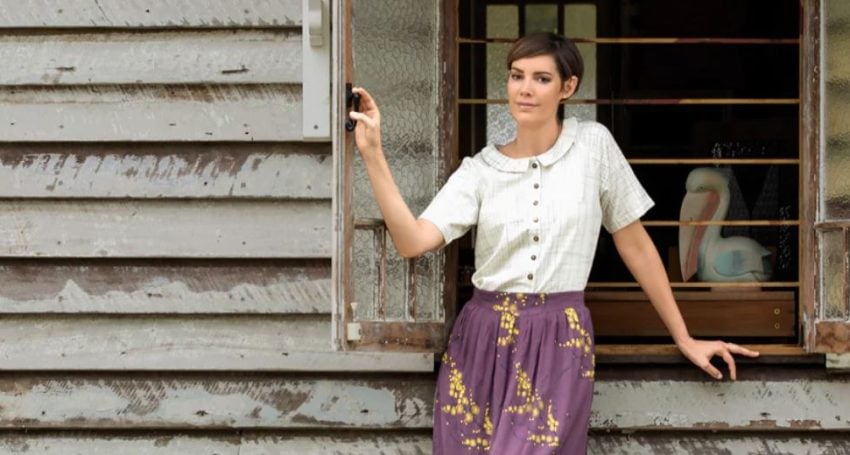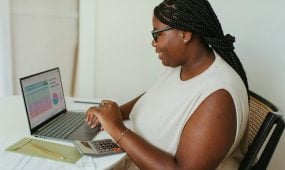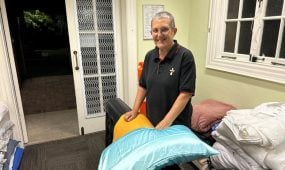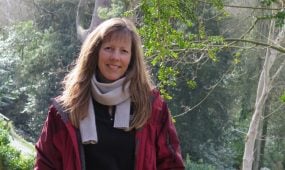Human trafficking
Justice & Advocacy
“As ordinary people living ordinary lives…we are part of the worldwide network of consumers who buy the products and services that make money for human traffickers. It is our responsibility as people who are called to love our neighbours to educate ourselves about where we are spending our money,” says The Rev’d Dr Ann Solari from St John’s Cathedral

What is human trafficking?
Human trafficking is often associated with modern slavery. It is an extreme form of exploitation where women, men and children are recruited or obtained and then forced to work against their will through force, fraud or coercion. Trafficking victims are often lured by false promises of decent jobs and better lives.
Traffickers violate the basic human rights of all people to freedom, autonomy and human dignity and to live free of exploitation, abuse and slavery. It reduces human beings to commodities that are traded for profit.
Advertisement
It is a serious crime that occurs in every country of the world. It takes place in factories, brothels, boats, farms, building sites and in private homes.
Trafficking turns people into commodities who are traded to fill our need for cheap goods and services. Human traffickers are able to earn a lot of money for very little risk. Often, we are unaware that the commodities we buy are the result of criminal exploitation of adults and children.
Human trafficking relies on children and adults who are vulnerable to exploitation. Vulnerability is increased by poverty, lack of education or employment, not having access to protection, being part of a minority group that is discriminated against, being a woman or child, and being unaware of human rights.
It is almost impossible to calculate the number of people trafficked worldwide. It is a crime that takes place out of the public view where the victims are generally too frightened or too vulnerable to speak up for themselves. The fear is often not as much about what will happen to them but what will happen to their families. It is estimated that the total number of global victims could be as high as 27-32 million people.
Human trafficking and people smuggling are not the same thing, but people smuggling can sometimes lead to a human trafficking or slavery situation. People smuggling involves people who have consented to being transported across a border illegally and usually does not result in ongoing exploitations of the passenger by the smuggler. Victims of human trafficking have not consented to be exploited and the exploitation is generally ongoing.
There are many different forms of human trafficking, including:
- Bonded labour or debt bondage is when the victim has to work to pay back an inherited or family debt or when the debt is incurred as part of the terms of the employment. The interest on the loan may mean that the debt can never be fully paid.
- Forced labour when a vulnerable person is forced into work and is not free to stop. Illegal migrants are particularly vulnerable to forced labour, but many people are forced into labour in their own countries.
- Exploitative child labour deprives children of their childhood and often their schooling. The work is often physically and/or psychologically damaging to them and deprives them of their full potential.
- Sex trafficking can be a form of debt labour or forced labour.
- Child sex trafficking. Any sexual use of children is exploitative and illegal.
- Forced marriage occurs when one or both of the parties are married without their consent or against their will. Forced marriage may also involve sexual exploitation and servitude.
- Involuntary domestic servitude is an exploitative situation from which someone, usually a woman, is unable to escape. Victims are vulnerable to physical, sexual and emotional abuse. It is difficult to detect because it is hidden in private homes.
- Child soldiers who are illegally recruited as fighters, or for labour or sexual exploitation by armed forces. This often involves children being forcibly abducted.
Human trafficking violates human rights, including:
- The prohibition of discrimination on the basis of race, colour, sex, language, religion, political or other opinion, national or social origin, property, birth, or other status.
- The right to life.
- The right to liberty and security.
- The right not to be submitted to slavery, servitude, forced labour or bonded labour.
- The right not to be subjected to torture and/or cruel, inhuman, degrading treatment or punishment.
- The right to be free from gendered violence.
- The right to freedom of association.
- The right to freedom of movement.
- The right to the highest attainable standard of physical and mental health.
- The right to just and favourable conditions of work.
- The right to an adequate standard of living.
- The right to social security.
- The right of children to special protection.
- The right to an effective remedy.
- The right to be protected from non-refoulement.
- The right to seek asylum.
What can we do about human trafficking?
Unless we are aware that human trafficking is a real problem there is nothing we can do about it. We all need to be educated in what it is and where we find it.
We need to know where we fit into the system that benefits the traffickers. As ordinary people living ordinary lives in Brisbane, we are part of the worldwide network of consumers who buy the products and services that make money for human traffickers.
It is our responsibility as people who are called to love our neighbours to educate ourselves about where we are spending our money.
We need to ask ourselves a few simple questions, including:
- When I buy clothes do I know where they have been made? Were all the workers in the chain paid fairly? What were their working conditions? Was any child labour involved? Is the company I am buying from honest and open about their supply chain?
- When I buy food do I look for information about where it comes from? Do I look for Fairtrade markings? Do I know what Fairtrade is? Do I choose chocolate that is certified free of beans from plantations using child labour? Is my coffee and tea Fairtrade? Do the countries where my biscuits, snacks, processed food were made have fair wage and working condition laws that are enforced? Where and how was my fruit grown and harvested?
- Do I know what is happening in the local area around me? Are there sweatshops in our suburbs? Are there local people, particularly immigrants, in situations of forced labour? Are the domestic workers in the houses around us okay? Sometimes we are called to be aware of what is happening. Sometimes being nosey is good.
- Am I willing to educate myself and others about how our lifestyle choices as consumers impact others?
What can the world do about human trafficking?
Human trafficking can only be stopped if we combine across national and cultural borders to take action.
We can reduce the likelihood that a person will become a victim if we make them and their community less vulnerable. We need to ensure that all children receive a comprehensive education, we need to continue to work on reducing poverty, reducing the effect of climate change, reducing discrimination in all communities, improving life skills and employment opportunities for all communities, improving protection of vulnerable people. We need to educate consumers to ask questions and expect answers.
Advertisement
We need to improve our response when possible or probable victims are identified. We need to be able to immediately protect and support them. This protection needs to be ongoing and comprehensive to keep them safe from further abuse, to protect their families and to help them rebuild their lives in a safe environment.
Governments and law enforcement agencies need to have the knowledge, the motivation and the resources to investigate and prosecute human traffickers. We need to have worldwide, enforceable polices and laws that turn human trafficking from a low-risk activity to one where the traffickers are likely to be detected, prosecuted and to suffer significant penalties.
Further information
‘Global report on trafficking person 2022’ by the United Nations Office on Drugs and Crime.
‘Understanding trafficking and slavery’ by World Vision.
First published in the May 2023 edition of The Eagle, the magazine of St John’s Cathedral. Read the latest edition of The Eagle online.





